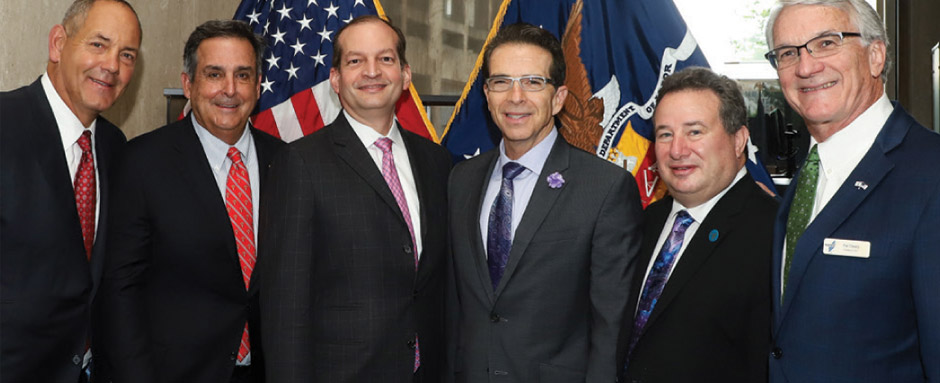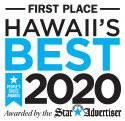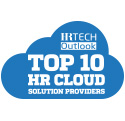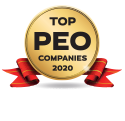Simply Business: PPP Loans and Forgiveness
Barron Guss, president and CEO of ALTRES, sat down in late March with T. Mark Spain, District Director for the U.S. Small Business Administration’s Hawaii-Pacific Islands office, and Arnold Martines, Executive Vice President and Chief Banking Officer of Central Pacific Bank. The group discussed ongoing Paycheck Protection Program loans in Hawaii and forgiveness of past PPP loans.
Listen to the podcast here:
Below are some highlights from the conversation and a Q&A that has been condensed for length and clarity. For information on the American Rescue Plan and its provisions regarding EIDL grants, Shuttered Venue Operators Grants, and restaurant revitalization funds, see the previous episode of Simply Business.
At a Glance
14:03
- On March 30, President Biden signed the PPP Extension Act extending the deadline for PPP loans to May 31, from the original deadline of March 31.
- That extension will help the SBA and lenders like CPB provide assistance to the smallest and hardest to reach businesses in Hawaii.
2:10
- Central Pacific Bank, the largest PPP loan funder in Hawaii, approved about 7,200 loans during the first round of the PPP in 2020.
- 85 percent of those loans were under $150,000. 72 percent were under $50,000.
- Central Pacific Bank has processed about 3,000 applications for PPP forgiveness worth roughly $190,000 million
5:35
- During the first PPP round, CPB funded about $550 million. During the second PPP round, CPB funded — as of late March — just under $300 million.
- As of the end of February 2021, the SBA had channeled about $5 billion worth of COVID relief into Hawaii.
9:50
- Some large business entities in Hawaii owned by foreign interest returned PPP funds after lending rules were clarified. But there has been little PPP loan fraud in Hawaii compared with the Mainland.
19:55
- T. Mark Spain and the SBA team in Hawaii are collaborating with SBA offices around the country to share best practices for effectively reaching businesses in need of PPP loan funding.
22:10
- Central Pacific Bank is making investments to better serve customers through its RISE2020 initiative.
Q&A
Barron Guss: Since a lot surrounds the SBA, what is the primary role of the SBA today?
T. Mark Spain: There are three primary roles. First is access to capital, which comes through lending. Second is counseling; we work with small businesses through resource partners. Third is contracting. Contracting deals with access to government contracts, usually federal but we also encourage state and local level contracting.
Guss: On the front lines for the SBA are the banks. No one has seen that more clearly than the largest PPP SBA lender in the state, Central Pacific Bank. Arnold, tell us a little about that journey.
Martines: We started back in April 2020 basically using a manual process. Behind the scenes were 200-plus of our employees working day and night to process PPP loan applications. And I’m really proud of our team. In the first round we were able to get over 7,200 PPP loans approved through the SBA. Eighty-five percent of the loans we did were under $150,000, and 72 percent were under $50,000. We feel really good about achieving the goal of reaching the small businesses in the community.
Guss: At that time, you were working from home and everyone was learning on the job. How did you stay on top of loan rules while everyone was looking to you for guidance?
Martines: There was a lot of collaboration. My standard phrase to our team was, we’re building an airplane while flying it, and we have to do it. We needed to get through the 7,200 applications in our queue to get the money to the small business owners.
Guss: Your metaphor about flying a plane and making adjustments makes me think: Every plane flying must land. I think it’s pretty easy to borrow PPP money, but how do you get it forgiven? What’s the process?
Martines: When we opened the forgiveness portal last year it was a lot more complicated than the origination portion. There was just a lot of questions around the rules, timing, and eligibility. It took a lot of time to get through all of that. Thus far, along with some good partners we’ve aligned with, we’ve been able to process about 3,000 PPP loan forgiveness applications. Last I checked, we’re at about $190,000 million in forgiveness. One of the things that held back the forgiveness process was waiting for action regarding loans below $150,000. We did recently get that, and I think we’re going to start seeing many small businesses applying for forgiveness.
Guss: We’ve had such a deep involvement with the PPP process through our clients. I ask people who are struggling if they got the PPP, and sometimes they’ll say no because they found the process complex.
Martines: I say to our team that it’s really necessary to get out there and talk to people. Talk to people about PPP because that word of mouth is really important, particularly for rural locations. We also offer opportunities like webinars or other talks within our branches where people can learn more about PPP. The other thing is talking with each county’s mayoral office because they care a lot about their small businesses and farmers who may be out of contact with the latest information. The mayors and their teams have been very helpful in getting the word out to small businesses in rural areas.
Spain: My follow on, when the Pacific Gateway Center asked us to come out and provide, we found one of the biggest missing pieces was access to hardware. So, I made an outreach inquiring about the possibility of getting iPads to the Pacific Gateway Center. Another example is working with Rotary clubs to get out information. In the month of April, we’ll be getting the information out more aggressively. Hence my term: Operation Footprint.
Guss: CPB is undergoing a lot of change. Arnold, can you comment?
Martines: When our chairman, Paul Yonamine, started with us in 2018, he looked at our bank and noted that we have so much opportunity and potential. We were founded by Japanese veterans who came back from World War II and couldn’t get loans to buy homes or start businesses. They got together and formed our bank. Paul reminded us of that legacy and said we need to persevere and make those founders proud of us. So, we started a huge initiative called RISE2020, which basically was an investment in our future.
We announced RISE2020 in July 2019, and then COVID hit. Behind the scenes there was still a lot of work that was going into RISE 2020. We made transformations in our consumer online platform and recently launched our new business online platform. We have a new flagship branch in downtown Honolulu. Who would have ever thought you could come to the bank, sit down, and have coffee from Starbucks or a beer from Aloha beer? It’s really a symbol of the hard work and the energy and enthusiasm we have about the future. I know it’s a tough time right now, but things are going to be OK. A year from now we’re going to be sitting back here talking about how great things have recovered, because they will. We do it by sticking together and supporting one another.
Guss: I’ve always believed small business is the engine of society. Both CPB and SBA, you exemplify that belief. I’m so happy both of you are part of our community.
Be sure to watch the entire interview (above) to get all the details.
Like us on Facebook and LinkedIn to get the latest on PPP loans and other issues affecting the local business community.
Have a question for our HR experts? Contact simplicityHR to learn more about the advantages of having our team of professionals on your side as you navigate the American Rescue Plan Act and PPP loans.
About Barron Guss
 Barron is President and CEO of simplicityHR by ALTRES, Hawaii’s leader in human resources outsourcing. Barron and ALTRES are credited with not only establishing the HR outsourcing industry in Hawaii, but also pioneering it nationally. His business has grown into a family of companies that include ALTRES, simplicityHR, HR Symphony, Real Jobs Hawaii, Home Care by ALTRES and four specialized staffing divisions (ALTRES Office, ALTRES Technical, ALTRES Industrial and ALTRES Medical) serving the state of Hawaii with office locations across Oahu, Maui, and Hawaii Island.
Barron is President and CEO of simplicityHR by ALTRES, Hawaii’s leader in human resources outsourcing. Barron and ALTRES are credited with not only establishing the HR outsourcing industry in Hawaii, but also pioneering it nationally. His business has grown into a family of companies that include ALTRES, simplicityHR, HR Symphony, Real Jobs Hawaii, Home Care by ALTRES and four specialized staffing divisions (ALTRES Office, ALTRES Technical, ALTRES Industrial and ALTRES Medical) serving the state of Hawaii with office locations across Oahu, Maui, and Hawaii Island.
A recognized leader of the national Professional Employer Organization (PEO) industry and long-time board member and 2019 chairman of the National Association of Professional Employer Organizations (NAPEO), his company began providing Human Resource services to local employers in 1969 when the industry was still in its infancy. Barron continues to lead the charge in the Business Administration arena and his dedication to innovation earned him the 2021 Corporate Intrapreneur of the Year by Hawaii Venture Capital Association.




